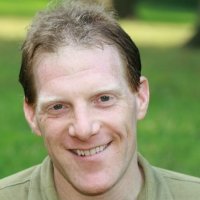The Columnist: Leaks, Lies, and Libel in Drew Pearson’s Washington
FDR called him a chronic liar and Churchill broadened the charge to “the most colossal liar in the United States.” Both wartime leaders feared Drew Pearson’s embarrassing revelations. From 1932 to 1969 Pearson’s daily column, “The Washington Merry-Go-Round,” appeared in 600 newspapers throughout the United States and abroad. Just as Pearson ushered his readers behind closed doors, Donald Ritchie has sought to uncover the facts behind the column: the sources who leaked to him and the credibility of his accusations.
Donald A. Ritchie is historian emeritus of the US Senate. At the Senate he conducted an oral history program, prepared the closed hearings of Joseph McCarthy for publication, and provided historical information for senators, scholars, and the media. Being often interviewed by reporters, he began exploring the history of political journalism, and previously published Press Gallery: Congress and the Washington Correspondents (1991), and Reporting from Washington: The History of the Washington Press Corps (2005).
The Washington History Seminar is co-chaired by Eric Arnesen (George Washington University and the National History Center) and Christian Ostermann (Woodrow Wilson Center) and is organized jointly by the National History Center of the American Historical Association and the Woodrow Wilson Center's History and Public Policy Program. It meets weekly during the academic year. The seminar thanks its anonymous individual donors and institutional partners (the George Washington University History Department and the Lepage Center for History in the Public Interest) for their continued support.
Speaker

Moderators

Woodrow Wilson Center

Professor of History, The George Washington University. Director, National History Center of the American Historical Association.
Panelists

Professor of History and of Journalism and Media Studies, Rutgers University.

Hosted By

History and Public Policy Program
A leader in making key foreign policy records accessible and fostering informed scholarship, analysis, and discussion on international affairs, past and present. Read more
